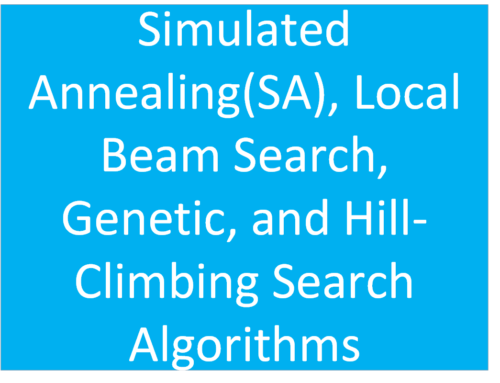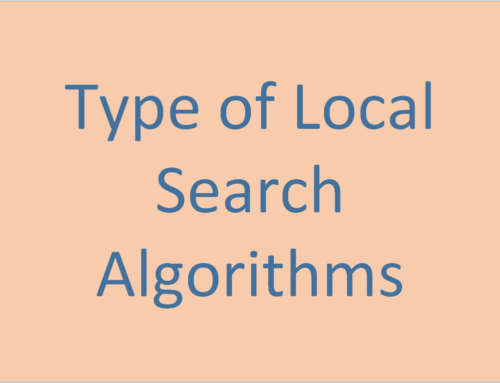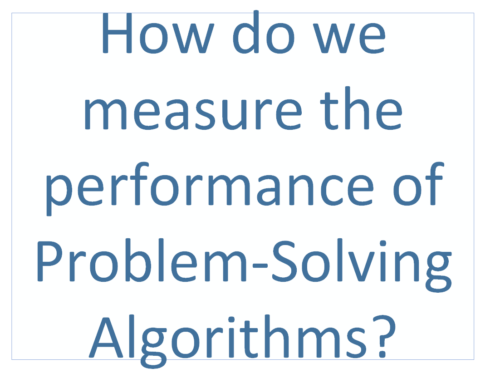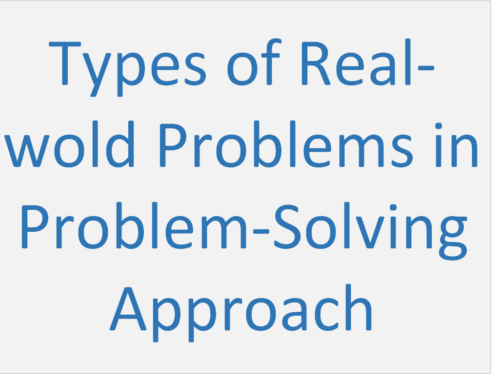Artificial Intelligence is the current buzzword everywhere. Whether we open a paper or internet, we stumble across articles on Autonomous cars, Industrial Robots, Autonomous Planning, and Rescheduling, Autonomous Supply Chain Planning, Automated text/talk chatbots, AI Game Playing, Advance Algos built on AI, AI Spam fighting, etc.
So, what is Artificial Intelligence?
The theory and development of computer systems able to perform tasks normally requiring human intelligence, such as visual perception, speech recognition, decision-making, and translation between languages.
Source: Oxford Reference
Leading AI textbooks define the field as the study of “intelligent agents”: any device that perceives its environment and takes actions that maximize its chance of successfully achieving its goals.
Source: Wikipedia
The above textbook definitions may be difficult to comprehend. Let’s try to understand Artificial Intelligence in simple words. A bot/agent built with Artificial Intelligence can work 24/7 without any break, rest or pay rise. The AI algorithms enable the bots to learn from past data to make correct decisions. An additional benefit of the hybrid AI algorithms are they being less error-prone than traditional algorithms and being able to make accurate predictions and decisions.
Let’s consider an example to understand Artificial Intelligence and the learning process. A child will take a few years to understand things that happen around him/her, to interpret what is it and how it happens. When the child encounters the same event/action next time he/she knows what it is. In a particular instance, when a child tries to touch a hot vessel, the child’s Mom/Dad instructs the child “Do not touch it, it is too hot, and it will hurt you”. At this point, the child either understands those words or touches the hot object and ends up hurting itself. The child learns from this and will never touch anything too hot. This is the learning process. It is the same way AI learns from data that is gathered from the past events/data and when similar events/ new data happens in the future it will be able to use the previous learning to predict accurately.
AI is going to alter the working of many industries very soon than we expect. The pace at which AI is growing is just not linear or zig zag but it is exploding in every possible area with many successful researches. As IT consultants, we must keep up with the speed of this new domain and be able to ride on it to get its real fruition. Beyond any doubt, Artificial Intelligence is going to have a positive impact on us and make our life better in the future.
Here are a few examples where AI is successfully being used in daily life.
1. iRobot Roomba Vacuum Cleaner to clean our house without human intervention.
2. Auto Facial recognition to open the home door for you.
3. Greet and welcome guests with names if they have already visited our house.
4. Smart replies in business emails.
5. Wireless auto charging your phone when battery power drops below a certain level.
6. Personalized product recommendations based on search, chat or browsing histories.
7. Room temperature control based on seasonal climate.
Artificial Intelligence hasn’t emerged instantly in the last decade. It’s been there for around 6 to 7 decades. AI seems to be more in demand now because of the emerging technologies that can support and store huge amounts of data, speed of 5G Internet, increased processor speed, Quantum computers, etc.
Here are some major events that are considered a big achievement in the Artificial Intelligence domain.
1. The year 1996: IBM’s Deep Blue won against the world’s best chess player Garry Kasparov.
2. The year 2002: The first robot for the home – an autonomous vacuum cleaner called Roomba.
3. The year 2010: Dance bots At Shanghai’s 2010 World Expo.
4. The year 2015: Tesla Autopilot was released as part of Tesla software version 7.0.
5. The year 2016: Google’s DeepMind won against the world’s best 9-dan professional Go, player.
6. The year 2017: Carnegie Mellon University Libratus AI won against the world’s best poker players.
Which industries are forging ahead in the major AI transition?
1. Transportation
2. Cybersecurity
3. Supply Chain Management
4. Healthcare
5. Stock Market
6. Advertising and Marketing
7. Manufacturing
8. Education
9. Retail
10. Social Networking
11. Gaming
Advantages of Artificial Intelligence:
1. 24/7 working bot
2. Fewer errors and high accuracy prediction.
3. Decision making faster and smarter.
4. Help to Identify cost reduction points.
5. Cheap labor and less maintenance cost (though everybody says high cost now but near future, it is going to be very cheap).
6. Detect fraudulent activity on Credit Card.
7. Help Household works and Teach kids.
8. Help humans in dangerous works.
9. Improve business processes.
10. Efficient Supply Chain.
As discussed above Artificial Intelligence is a fast-developing domain, however, there are not enough experienced IT consultants in this area. We will see many openings pop up across the job websites for Artificial Intelligence as the need in this industry is higher than expected.
I encourage the readers of this article to comment on what they think will be the future for Artificial Intelligence.
Is anyone interested in learning AI?
What industries do you think will be ahead in AI technology?
We can check other alternative as Machine Learning.
Read my blogs and visit my website to learn more on emerging technologies.






Leave A Comment